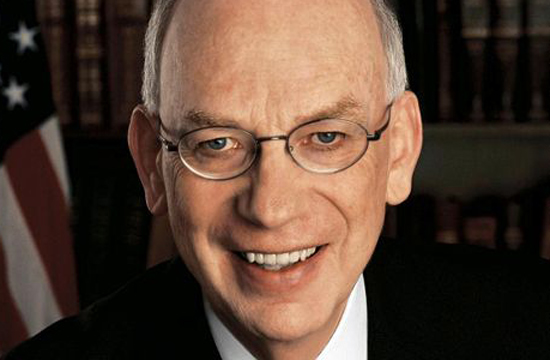Sen. Bob Bennett’s (R-UT) political life is on the line tomorrow, with a state Republican convention that has the power to deny him even any chance to fight for the GOP nomination in a primary — and a party base that has been dissatisfied and sees him as being too settled in Washington after three terms.
Bennett, who for his part has a conservative voting record, has been targeted for defeat by the right for not being conservative enough. In addition to grassroots angst with his vote for the TARPÂ bailout, the Club For Growth has also targeted him for having briefly worked with Sen. Ron Wyden (D-OR) on a health care bill, though he ultimately voted against the bill that passed a month and a half ago. At the party caucuses in March, many supporters of challenger candidates won delegate seats for the convention thanks to a heavily increased turnout.
Bennett faces a total of seven challengers at the convention, but three are the most significant: Attorney Mike Lee, businessman Tim Bridgewater, and businesswoman Cherilyn Eagar. A Mason-Dixon poll from two weeks ago, of a sample of convention delegates, gave Lee 37%, Bridgewater 20%, and Bennett only 16%, with Eagar at 11%.
At a radio debate today, Bennett disputed the notion that he is not conservative. “I don’t have any understanding how somebody can look at my record and say, ‘Gee, this guy is a liberal.’ That is nonsense,” he said. “The reality is I’m considered in Washington as one of the most conservative members of Congress.”
Under the rules of the Utah GOP, a candidate with 60% of the convention vote will be nominated outright, with no primary. Voting is conducted by secret ballot over three rounds, which will narrow the field of candidates down from eight names, to three, and then to two candidates for a final vote. If the 60% super-majority is not reached, then the final two contenders will meet in a primary. If anyone receives 60% on a first or second ballot, the process will be immediately over. The bottom line: A candidate with 60% is nominated outright, but if the second-place finisher can instead get to 40% there will be a primary.
A GOP source in Utah gamed out for us how things could go. “The first ballot’s gonna tell, as soon as you get the first ballot back,” the source explained. “If Mike Lee is over 35%, then I think he has a shot to get 60% by the third ballot. If Bennett is second and Bridgewater is close to him, or if Bennett is third, then I think Bennett is toast, because Bennett is not gonna get many second votes of the delegates. And if Bennett is substantially ahead of Bridgewater, or if by some chance Cherilyn Eagar is third, then Bennett has a chance to carry it through to the primary. But it’s really hard right now to tell where everybody is.”
I asked the source this question: If they had to bet a small amount of money on the result, would they say Bennet makes it to the primary? The source’s answer: No. Bennett is also said to have a serious problem: Many floating delegates are of a mindset that they’ve already mentally eliminated Bennet, and are simply trying to choose from among the anti-Bennett choices.
The first vote is expected to occur at about noon Mountain Time, with the result announced at about 1 p.m. MT. The second ballot would then be held immediately, with the result available at around 1:30 p.m. MT. A third ballot result could be announced at 3 p.m. MT.
The Bennett campaign has not returned our request for comment.






